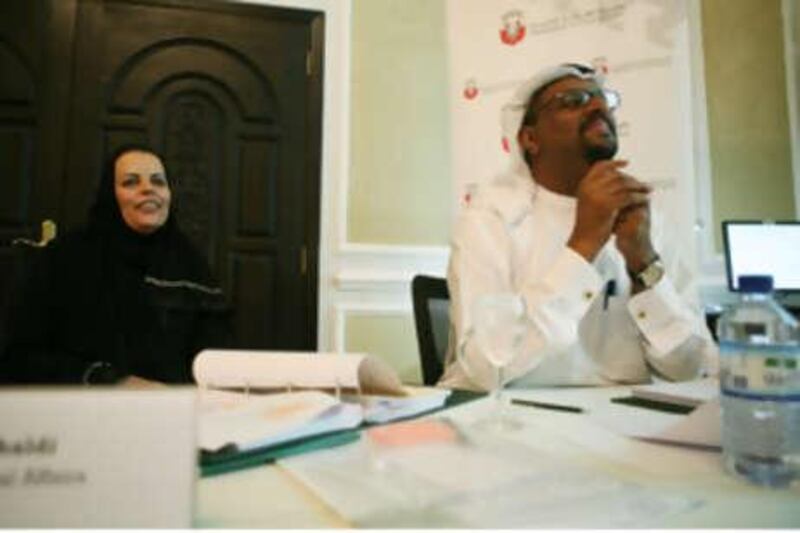ABU DHABI // The first students - 15 men and three women - have begun a new master's programme designed to train the Government's future leaders. The students, aged 25 to 55, were drawn from a range of departments, including the Department of Municipal Affairs, Planning and Economy, and the Ministry of Presidential Affairs.
They began studies for the master's in entrepreneurial leadership this month. The programme is a joint project of Insead, the international business school, and the Department of Civil Service. The Government will spend Dh75 million (US$20.4m) on the project over the next three years, hoping to elevate some of its most talented employees and contribute to its goal of becoming a world-class administration by 2012.
Over the next 18 months, the students are to cover a range of topics to develop creativity and entrepreneurial skills. They will also travel to Insead's centres in France and Singapore. They were chosen according to criteria including experience, motivation and qualifications, and were drawn from the Government's National Programme for Leadership Development, which began more than two years ago to groom and fast-track promising employees. Hundreds of employees have since participated in the programme, which is tailored to each participant and department.
Hussah al Khaldi, one of the three women in the master's programme, has been the protocol adviser at the Ministry of Presidential Affairs since 2005. She was also seconded as deputy chief of protocol to the division of Sheikha Fatima bint Mubarak. "We are all discovering different ways of thinking and learning from each other, plus experiences from the other government departments," she said. "The master's is covering so many subjects that you feel you're tackling a number of different things as well, with many different approaches."
Many people are leaders by nature, but need help to develop their strengths and weaknesses, she said. After graduating, Ms Khaldi said, she and her colleagues can apply what they have learnt to any government department. "It's a new way of thinking," she said. "After this, we'll look at things with a more international perspective." A major part of the assessment process will be project-based, examining the participants' work in specific departments and agencies. They will be encouraged to look at old problems in new ways, introducing innovative thinking when developing their business strategies.
The aim is to shake up the "bureaucratic and hierarchical system" in the Government, said Tarig Aljabry, director of outsourcing contracts for Abu Dhabi Municipality. The master's will also mean the emirate can be judged as having a certain level of international education. "It is catered to our needs," he said. "Most programmes like this have international case studies... but this has local ones we can relate to - for example, a date factory in Al Ain. It talks about the environment we are in and the cases we're dealing with."
The national programme is ongoing, providing a pool of talent for the Government by putting candidates through a series of challenges to test their aptitude for government work. The programme will then create portfolios for those who are ready for leadership jobs when they become available. Projects such as the master's programme are part of the Government's drive to retain employees and reduce apathy.
"One of the very important priorities is talent selection and retention," said Sana al Neaimi, head of strategy at the Department of Civil Service. "This partnership with Insead fits with the Government's policy to develop nationals as future leaders." mswan@thenational.ae






